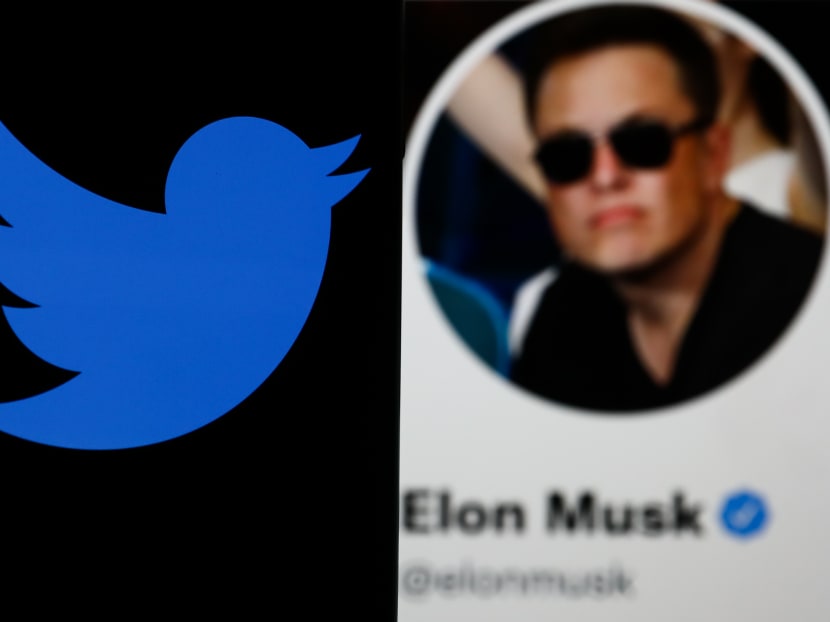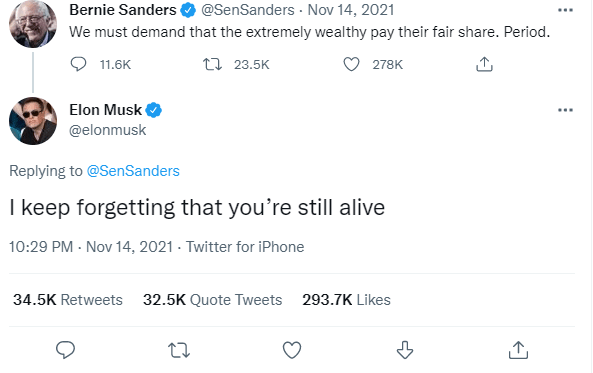Explainer: Why has Elon Musk bought Twitter and what are the implications for the social media giant?
SINGAPORE — Tesla chief executive Elon Musk clinched a US$44 billion (S$60.4 billion) deal to buy over Twitter on Monday (April 25), in a move which will place one of the most popular social media platforms under the control of the world’s richest person.

- Twitter's board on April 25 approved a US$44 billion deal by Tesla CEO Elon Musk to buy the social media platform
- The Tesla billionaire's public feuds on Twitter have been praised by his followers but also sparked criticism over being unnecessarily offensive
- Twitter CEO Parag Agrawal told Twitter employees on Monday that the future of the social media company is uncertain after the takeover
- Mr Musk has criticised Twitter's policies even before making public his intentions to take over the company
- Mr Musk’s successful takeover bid has led some to wonder whether he would reverse decisions that the company had made in the past
SINGAPORE — Tesla chief executive Elon Musk clinched a US$44 billion (S$60.4 billion) deal to acquire Twitter on Monday (April 25), in a move which will place one of the most popular social media platforms under the control of the world’s richest person.
The multi-billion deal concludes a saga lasting several weeks between the outspoken entrepreneur and the social media giant, after a regulatory filing revealed that Mr Musk was actively building a stake in the company earlier this month.
The move has raised questions over the fate of Twitter, at a time when governments and politicians are placing pressure on social media companies over their policies and the content that appear on their platforms.
WHO IS ELON MUSK?
Born on June 28, 1971, in Pretoria, South Africa, Mr Musk has become synonymous with American automotive firm Tesla through his outspoken leadership of the company, having served as its chief executive officer (CEO) since 2008.
He is also the CEO and founder of American aerospace manufacturer SpaceX.
Credited with driving the global push for electric vehicles, Tesla surpassed a market capitalisation of US$1 trillion in 2021, and as of April 2022 is worth around US$1.03 trillion, according to reports.
The success of his companies has pushed up Mr Musk's wealth, making him the world’s richest person with a net worth of over US$260 billion.
Mr Musk is known to be a prolific Twitter user himself, having posted over 17,500 tweets and amassing over 80 million followers on the platform.
His active engagement online has made him a divisive figure on Twitter, where his tweets have often become a source of controversy and also landed him in legal trouble with United States authorities.
While his followers have been welcoming of his tweets on business decisions and market news, he has been accused of using his massive following to manipulate stock prices and cryptocurrency markets.
His public feuds with politicians and fellow billionaires on the platform, while praised by his followers for his directness, have also sparked criticism of him being unnecessarily offensive.
As recently as Saturday, he tweeted a picture of Mr Bill Gates alongside an emoji of a pregnant man in an apparent comparison, with the caption “in case u need to lose a boner fast”.
He had previously also replied to a tweet by US Senator Bernie Sanders calling for more tax on the rich with "I keep forgetting that you’re still alive", sparking backlash from Twitter users who felt the the tweet was too disrespectful.
But Mr Musk has since stated he hopes that even his worst critics remain on Twitter, “because that is what free speech means”.

HOW TWITTER MAY CHANGE
Even the current Twitter CEO, Mr Parag Agrawal, has no idea what will happen once Mr Musk takes over the reins of the company. Mr Agrawal took over from Twitter co-founder and former boss Jack Dorsey in November 2021.
It is also not clear if Mr Musk will be taking on a more hands-on role at Twitter, but as reported by the BBC, Mr Musk told Twitter's board in his offer document : "I don't have confidence in management."
Mr Agrawal had told Twitter employees on Monday that the future of the social media company is uncertain after the takeover, but said there were no plans for layoffs.
Be that as it may, Mr Musk has over the years criticised Twitter's policies as well as set out plans for the social media platform, even before making public his intentions to take over the company.
A self-described "free speech absolutist", Mr Musk was said to have wanted to drive change in this aspect for the social media giant.
He had initially alluded to building a new platform on March 27 in a tweet asking his 80-over million followers whether a new platform was needed, after a series of tweets criticising Twitter’s policy on free speech.
To Mr Musk, Twitter serves as the “de facto public town square”, and the platform’s policies on removing or blocking certain content fails to adhere to free speech principles and “fundamentally undermines democracy”, he tweeted on March 27.
“Free speech is the bedrock of a functioning democracy,” said Mr Musk in a statement posted on Twitter on Tuesday following the buyout.
“Twitter has tremendous potential – I look forward to working with the company and the community of users to unlock it,” he added.
IMPLICATIONS ON POLICY, REGULATION
Mr Musk has also said that he was seeking to enhance the social media platform with new features, making the algorithms open source and defeating spam bots.
In a Twitter poll on April 4, the Tesla CEO asked users if they wanted an edit button. Urging people to vote carefully, the current CEO Agrawal said at the time that the poll had "important consequences".
With Mr Musk intending to take the social media firm private, it could mean that the billionaire alone could decide the direction of Twitter’s policies.
Aside from his approach to the platform content moderation policies, Mr Musk’s successful takeover bid has led some to wonder whether he would reverse decisions that the company had made in the past.
According to reports, there are already concerns that former US President Donald Trump may be allowed back onto Twitter, after he was banned following the US Capitol riots.
When Mr Trump was slapped with the ban, Mr Musk had tweeted: "A lot of people are going to be super unhappy with West Coast high tech as the de facto arbiter of free speech."
However, Mr Trump has since set up his own social media platform called Truth Social to rival Twitter, and reportedly said in a Fox News interview on Monday that he will not return to Twitter.
US President Joe Biden's administration declined on Monday to comment on the Twitter deal, with White House spokesperson Jen Psaki echoing previous sentiments that the concerns were not new and that social media platforms need to be held accountable.
"The President has long talked about his concerns about the power of social media platforms, including Twitter and others, to spread misinformation,” said Ms Psaki.
Given his stance on free speech, some said Mr Musk's takeover will likely have implications on regulations by governments around the world that have passed or are mulling legislation for social media platforms to do more to tackle misinformation, online harassment, and other Internet harms.
The regulation of social media platforms has been widely debated in recent years as authorities around the world sought to clamp down on fake news, especially those surrounding the Covid-19 pandemic and geopolitics.
Over the years, governments have also pressured Twitter and other platforms to curb illegal electoral influence by foreign parties, which has led social media companies to design new ways to detect such malicious attempts.
But Mr Musk had disagreed with the direction that Twitter took, arguing in March via tweets that Twitter had “undermined democracy” with its restrictions on posts by its users.
Posting a Twitter poll, the billionaire asked his 80 million followers: “Free speech is essential to a functioning democracy. Do you believe Twitter rigorously adheres to this principle?” Around 70 per cent voted 'no'.











